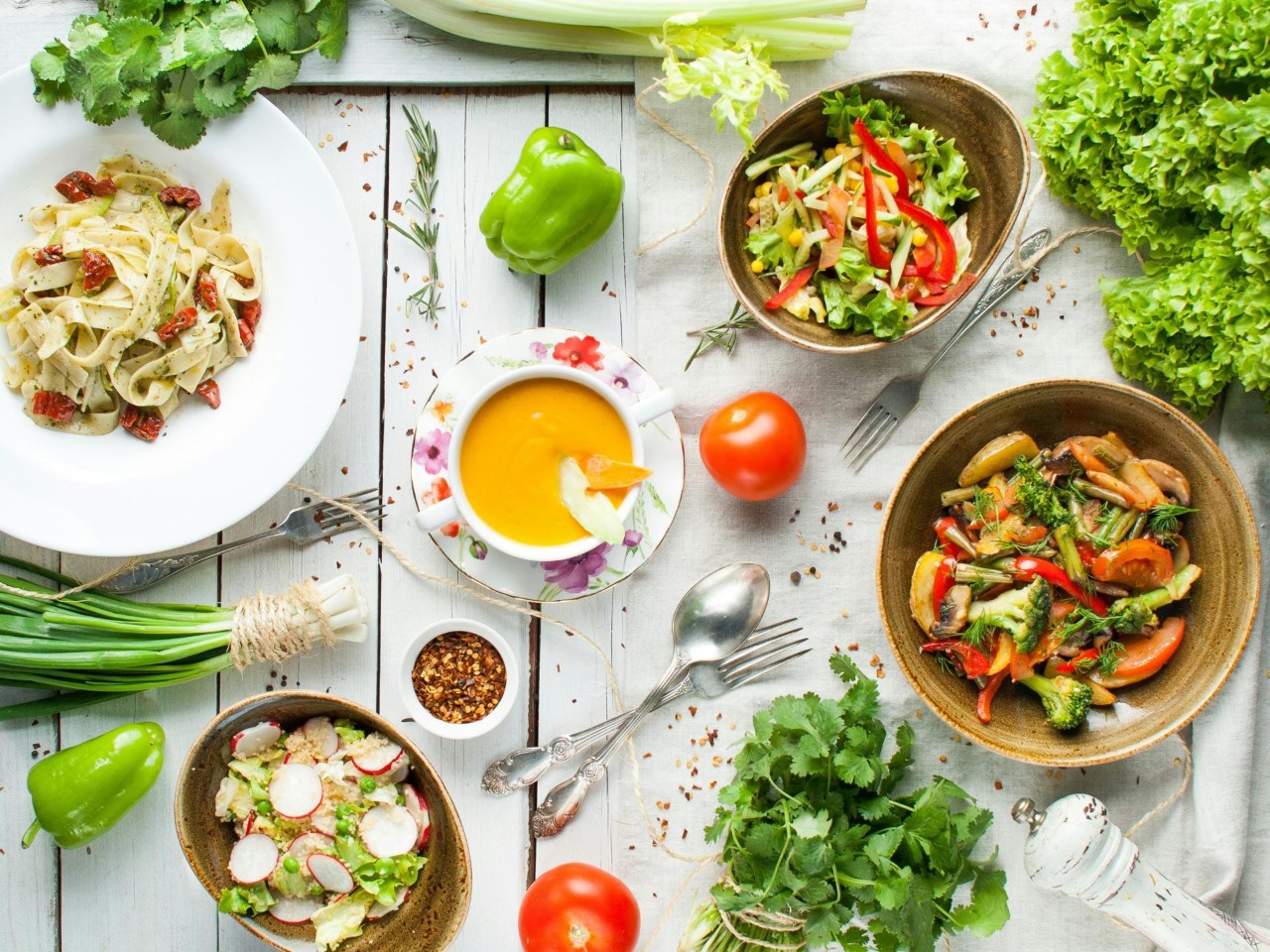The best plant-based restaurants in Luxembourg

Menus that consist of at least two-thirds fruits and vegetables, showcase culinary creativity, offer a limited environmental footprint and a positive social impact are the criteria judged by We're Smart World in their gastronomic guide "We're Smart Green". In Luxembourg, 14 restaurants have been awarded radishes, which are used to rank the best plant-based restaurants.
Radishes, small plants for ground-breaking restaurants
The "We're Smart Green Guide" uses an innovative approach to judge restaurants. It focuses on plant-based dishes. The menus must consist of at least two-thirds fruit and vegetables. However, they also evaluate the culinary creativity, as well as the ecological footprint and social impact. As such, the restaurants selected are given between 1 and 5 radishes.
Would you like to eat in a restaurant where plant-based dishes go hand-in-hand with culinary excellence? Long gone are the days when vegetables were merely a side dish or used to decorate a plate! Here are the restaurants in Luxembourg, ranked according to their radishes by "We're Smart Green":
- Fields, in Findel: 5 radishes.
- Ma Langue Sourit, in Moutfort: 5 radishes.
- Fani, in Roeser: 4 radishes.
- Archibal De Prince, in Echternach: 4 radishes.
- La Villa de Camille et Julien, in Luxembourg City: 4 radishes.
- Ryôdô, in Luxembourg City: 3 radishes.
- Léa Linster, in Frisange: 3 radishes.
- Les jardins d'Anaïs, in Luxembourg City: 3 radishes.
- Mosconi, in Luxembourg City: 2 radishes.
- Apdikt, in Steinfort: 2 radishes.
- De Gaart, in Luxembourg City: 2 radishes.
- Bosque Fevi, in Esch-sur-Alzette: 2 radishes.
- Public House, in Luxembourg City: 2 radishes.
- OiO, in Luxembourg City: 1 radishes.
Most of these restaurants are already well-known by Luxembourgers. Learn more about them in the Gault&Millau 2025.
For their part, Fields, Ma Langue Sourit, Ryôdo, Léa Linster, Fani, Mosconi , La Villa de Camille et Julien and Archibald De Prince are Michelin-starred restaurants.
Working towards a more plant-based diet and cuisine
The approach of the "We're Smart Green Guide", which combines high-quality gastronomy and sustainability, is in keeping with the changes witnessed in our societies towards more environmentally responsible consumption habits. The "Michelin Guide" has also recognised the environmental emergency and launched the green star to award excellence in sustainable gastronomy in 2020. It proves that the leading restaurants and culinary guides are in tune with the times.
In fact, according to a report published in the Smart Protein report (financed by the European Union) overall growth in the plant-based food sector increased by 49% between 2018 and 2020. Increased awareness of the ethical, environmental and health consequences has led many Europeans to reduce their consumption of meat and dairy products, or even to eliminate them completely from their diets.
A brief glossary of vegetarian and vegan terms
Vegetarians and vegans... more and more people are turning to a meat-free diet, but it's easy to get the terms mixed up. Here are a few tips to clear up any confusion!
- A vegetarian diet excludes the consumption of meat, but there are several variations with regard to the other foods consumed:
- Lacto-ovo vegetarians consume milk, dairy products and eggs to supplement the plant-based diet, but do not eat fish, molluscs or shellfish.
- Lacto vegetarians also exclude eggs from their diet.
- Ovo vegetarians consume eggs but not dairy products
- Pescetarians eat fish.
- A vegan diet is solely based on plant-based food sources: no meat, no fish, no milk, no eggs, no honey are permitted in a vegan diet.
Veganism goes beyond food. It is a way of life which excludes any animal-based products, not just in the food chain. For example, a true vegan would not buy leather shoes nor cosmetics tested on animals.
Vegetarianism is all about a healthy lifestyle not the latest fashion or trends. In fact, the World Health Organisation recommends a healthy diet with at least 400g of fruit and vegetables per day and a fat-based energy intake of less than 30%. In Luxembourg and Europe, cardiovascular diseases, type 2 diabetes and certain cancers are the leading cause of death. Being overweight and obesity are the main risk factors. To tackle this issue, the Gesond iessen, Méi bewegen (Eat well and move more) programme encourages a healthy diet and regular physical activity.
Last update

